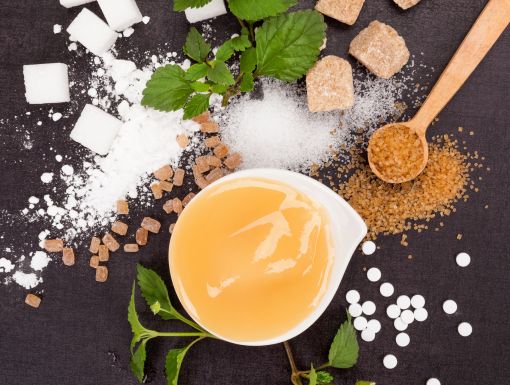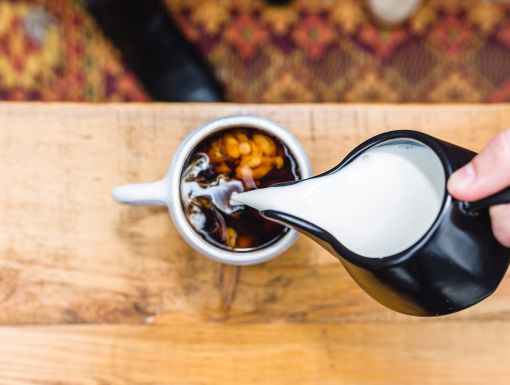
A Complete Guide to the 5 Best Plant-Based Sweetener Options
The array of plant-based zero-calorie sweeteners available in grocery stores continues to expand, making it easier than ever to dial back on added sugar – and artificial sweeteners.
More options means more confusion, though, so here's a rundown on low- and no-calorie plant-based sweeteners — from how they taste to the best ways to use them.
Why should you limit sugar?
The average American diet contains about 13% added sugar. This includes table sugar and high fructose corn syrup, as well as ‘natural’ sugars like raw coconut sugar, maple syrup, honey and agave.
- A diet high in added sugars is pro-inflammatory, linked to an increased risk of conditions from cancer to heart disease to joint pain and more.
- Added sugars also contribute to excess calories and weight gain, with minimal or no nutritional benefit.
- A diet high in added sugars can set us up on the blood sugar + cravings rollercoaster, causing and perpetuating our desire for more carbs and more sugars
What are some natural, plant-based sweeteners?
Below are a list of the most common natural plant-based sweeteners, categorized by their sweetness intensity.
High Intensity - up to 300 times sweeter than sugar (sucrose)
Stevia: Approximately 150 to 200 times sweeter than sugar. Derived from the stevia plant, some people may perceive stevia as bitter. Many stevia products on shelves are a blend of stevia + erythritol or monkfruit. Contributes essentially zero calories or carbs when used in products.
Monkfruit: Approximately 200 times sweeter than sugar. Also referred to as lo han guo, monkfruit is derived from a fruit that has been consumed in China for hundreds of years. Contributes essentially zero calories or carbs when used in products
Low Intensity - closer to 1:1 ratio with sugar
Erythritol: Approximately 60 to 70% as sweet as sugar but with virtually zero calories. Small amounts occur naturally in fruits; most erythritol is produced by fermenting glucose with various yeasts.
Erythritol is bulky, providing a volume similar to that of sugar, so it’s often combined with high intensity plant-based sweeteners (Swerve, for example, is a blend of erythritol and allulose). Contributes essentially zero calories or carbs when used in products.
Allulose: Approximately 70% as sweet as sugar; only contributes 0.4 calories per gram (compared to 4 calories per gram of sugar). Compared to erythritol, allulose caramelizes and browns more like sugar; also brings a higher moisture content into baked goods
Xylitol:Close to 1:1 ratio with sugar. Large amounts of this sweetener may have a laxative effect, but it’s otherwise safe for humans. Even small amounts of xylitol, however, can be dangerous to dogs. Xylitol can trigger a significant release of insulin from their pancreas, followed by a sharp drop in blood sugar that, left untreated, can be life-threatening. Xylitol also causes liver disease in dogs.
Get food and fitness tips delivered straight to your inbox every week. Sign up for our free newsletter.
For more on plant-based sweeteners, check out Molly’s FUELED podcast episode.



